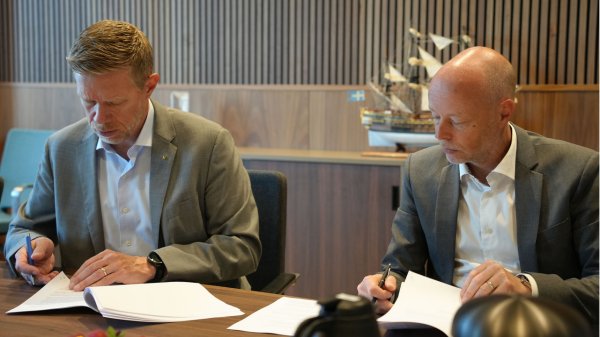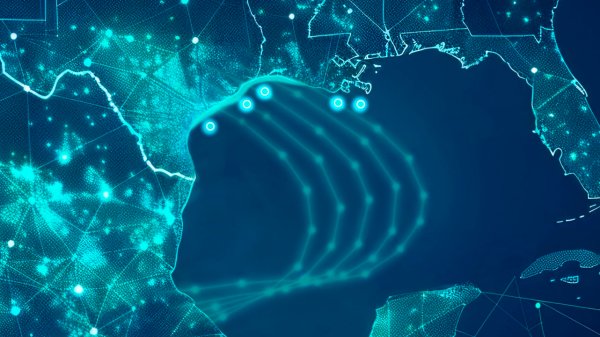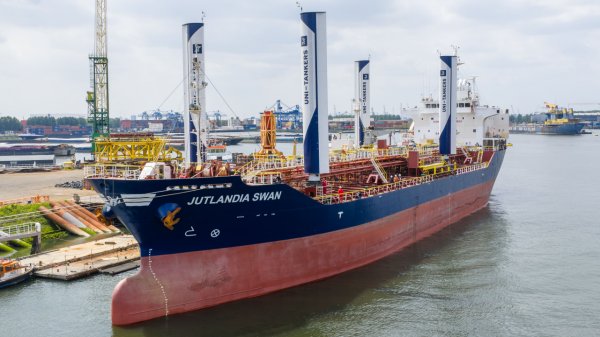
Energy firm and bunker supplier Gasum has made a pledge to start processing ship-generated wastewater and biowaste into biogas for the period 2022–2026 as part of its Baltic Sea Commitment to the Baltic Sea Action Group's (BSAG) Ship Waste Action project.
With approximately 2,000 cargo ships operating in the Baltic Sea at any given time, it is currently legal to discharge greywater and sewage into the Baltic Sea.
And now Gasum, which began supplying liquefied biogas (LBG) as a marine fuel four years ago, has committed itself to promoting the principles of a circular economy by consenting to receive and process agreed amounts of wastewater and biowaste from a number of ports to be selected in collaboration with BSAG.
Gasum says it will also separately agree to receive sludge from wastewater treatment plants that process ship-generated wastewater, whilst also carrying out research into the amount of wastewater discharged into the selected ports and the potential for biogas production.
A biogas marine fuel pioneer
Gasum is a pioneer in the supply of biogas bunkers. Its maiden delivery of liquefied biogas was back in June 2018 when Furetank Rederi's vessel, the Fure Vinga, was supplied at Gasum's biogas plant in Lidköping via a truck-to-ship bunkering operation. Since then, Gasum performed its first LNG-LBG ship-to-ship bunker delivery to a cargo vessel in 2020, and last year began LBG delivery trials to the Finnish Border Guard.
In addition to the environmental benefits of LBG as a fully renewable, low-emission fuel, a key element to take into account with regard to logistics is that existing LNG supply infrastructure can be used for the delivery of LBG without any modifications — as both LNG and LBG mainly consist of methane gas.
Also, recycled nutrients are produced in the biogas production process and can be used in agriculture and in industrial processes to replace synthetic and virgin nutrient products.
Launched in the Finnish port of Hamina-Kotka last autumn, BSAG's Ship Waste Action project is a joint cooperation that uses cargo ship sewage for circular-economy purposes. Other partners, besides Gasum, are the Port of Hamina-Kotka, Kymen Vesi wastewater treatment plant, Autoyhtymä Vuorinen, shipping companies Meriaura and RABN, Essberger & Stolt Tankers, Utkilen and Maersk, as well as shipbrokers C&C Port Agency, Dahlberg's Agency and GAC Finland. Operations are currently ongoing in Rauma and also being expanded to other ports.
Commenting on the company's Baltic Sea Commitment, Elina Saarivuori, Sustainability Manager at Gasum, said: "Gasum is a Nordic energy company and a strong circular economy actor. For us, the Ship Waste Action is a great opportunity to promote circular economy solutions and to work for the good of the Baltic Sea. Cooperation with other actors is important to discharge ship-generated waste into a port from where it can be recovered for use. Besides renewable energy production, we want to promote the agricultural use of recycled nutrients created in the biogas process. We are using carbon footprints to assess the climate impacts of nutrient products in the project."
Elisa Mikkolainen, Project Director at Baltic Sea Action Group, stated: "Whereas our priority is to get wastewaters generated by cargo ships discharged on land instead of into the Baltic Sea, that is just the first step. Since the very beginning of the Ship Waste Action, it has been important to us to find a use for wastewaters in the circular economy. Producing biogas from wastewaters is an excellent solution as far as the Baltic Sea is concerned."

|
New Gothenburg lease an opportunity to expand green portfolio: Inter Terminals
Bunker terminal operator eyes tank conversion and construction projects for renewable products. |
|
|
|
||

|
Peninsula extends US Gulf operation offshore
Supplier to focus on Galveston Offshore Lightering Area (GOLA) in strategy to serve growing client base. |
|
|
|
||

|
Uni-Tankers vessel gets wind-assisted propulsion
Fourth tanker sails with VentoFoil units as manufacturer says suction wing technology is gaining traction. |
|
|
|
||

|
Swedish biomethane bunkered in Gothenburg
Test delivery performed by St1 and St1 Biokraft, who aim to become large-scale suppliers. |
|
|
|
||

|
Cockett to be closed down after 45 years
End of an era as shareholders make decision based on 'non-core nature' of Cockett's business. |
|
|
|
||

|
Petrobras confirms prompt availability of VLS B24 at Rio Grande
Lead time for barge deliveries currently five days. |
|
|
|
||

|
IMO approves pricing mechanism based on GHG intensity thresholds
Charges to be levied on ships that do not meet yearly GHG fuel intensity reduction targets. |
|
|
|
||

|
VARO Energy expands renewable portfolio with Preem acquisition
All-cash transaction expected to complete in the latter half of 2025. |
|
|
|
||

|
NYK trials biofuel in milestone coal carrier test
Vessel is used to test biofuel for domestic utility company. |
|
|
|
||

|
H-Line Shipping orders LNG bunkering vessel
Vessel with 18,000-cbm capacity to run on both LNG and MDO. |
|
|
|
||
| Gasum secures LNG licence for Belgium [Insights] |
| Gasum ups LNG supply capacity in ARA [Insights] |
| Gasum performs maiden LNG delivery in France [Insights] |
| Gasum starts biogas delivery trials to Finnish Border Guard [Insights] |